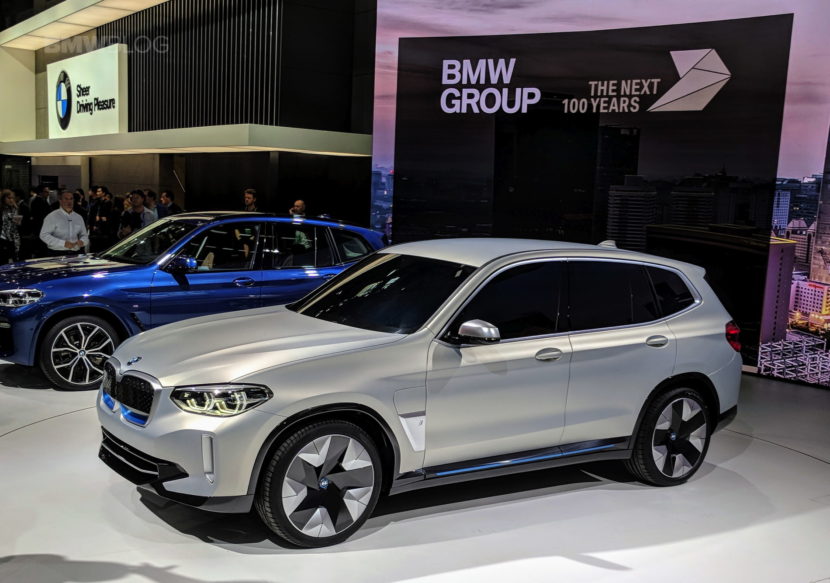BMW’s newest EV project is the iX3, a fully-electric SUV based on the current BMW X3. It’s significantly different from its BMW i3, which is a bespoke electric car built on a carbon fiber structure. The BMW iX3 is built on the same chassis as the X3 and features a traditional SUV body. Some EV fans are skeptical of such a car because of it being built on a pre-existing SUV. However, BMW isn’t the only brand who’s doing such a thing. In fact, the Mercedes EQ C is basically the exact same idea and Auto Express recently took a ride in what will be the iX3’s main competitor.
The Mercedes EQ C will be built on the GLC-Class chassis, much like the iX3 is built on the X3’s. So it will also be shaped like traditional SUV and have similar cargo space. It will sport two electric motors, one at each axle, and will have 335 hp and a claimed 310 miles of range, both figures best the BMW iX3’s. According to Mercedes, the EQ C could be able to charge about 50-percent of its battery in just 20 minutes, although no official charge times have been announced.
What’s interesting about the Mercedes EQ C is how the brand has tuned the motors. Mercedes has programmed the two electric motors to function very differently. The front motor will be the workhorse of the two, handling almost all normal driving duties on its own to save battery, while the rear motor will only kick in for performance-oriented driving. That front electric motor can also decouple when coasting, so as to save even more energy.
According to Auto Express, who was driven around in the Mercedes EQ C, it’s incredibly quiet on the inside and was even capable of cruising at 120 mph, which is really impressive for an EV SUV. It’s also quite comfortable, thanks to riding on the E-Class Estate’s self-leveling air suspension. Due to that, it sits quite a bit lower than the standard GLC-Class but the EQ C is not designed to tackle anything other than smooth pavement.
With the Mercedes EQ C in the pipeline and the upcoming Audi e-tron on its way, it seems as if BMW isn’t alone in having an electric SUV based on a traditional SUV chassis. It’s the more cost effective way to make an electric SUV and it allows customers to have an electric vehicle that looks and feels like a normal car. So while such cars won’t have the flash of a bespoke electric car like the BMW i3 or a Tesla, the industry seems to think they’re the way to go.
[Source: Auto Express]





































































